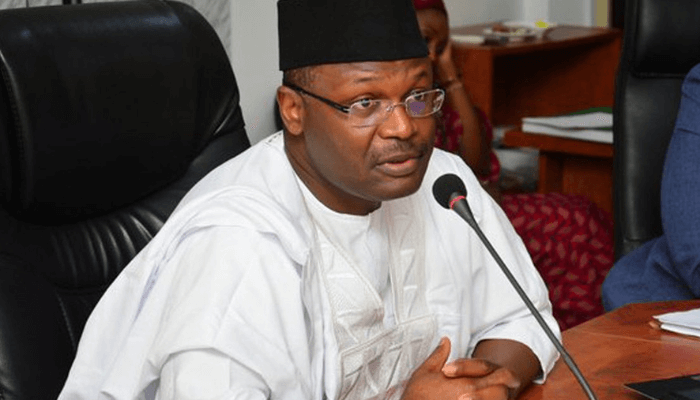Former INEC Chairman Yakubu Reveals Why Technology Alone Can’t Guarantee Electoral Credibility

Mahmood Yakubu, the former chairman of the Independent National Electoral Commission (INEC), recently underscored that although technological tools have significantly improved election transparency, they cannot single-handedly guarantee the authenticity of electoral processes.
This insight was presented in the preface of the latest report, Election Management in Nigeria: 2015-2025 (INEC, July 2025).
Yakubu stated, “While technology bolsters the integrity of elections, it cannot replace it. The Commission must continue to build confidence, expand voter engagement, and proactively tackle new challenges in election administration.”
The publication draws attention to persistent obstacles beyond technology, including electoral violence, vote-buying, logistical inefficiencies, and conflicting court decisions, all of which continue to erode electoral credibility.
It also records numerous episodes of attacks on INEC facilities and intimidation of its personnel across different states.
Despite the strides made through digital innovations in voter verification and election transparency, the report acknowledges ongoing setbacks caused by human mistakes, technical glitches, and institutional frailties.
For example, the Bimodal Voter Accreditation System (BVAS), which authenticates voters using fingerprint and facial recognition technology, has been instrumental in curbing multiple voting and identity fraud. Nevertheless, it has faced obstacles such as unstable internet connectivity and equipment failures at numerous polling locations.
Related read: Nigerian herbal remedies can achieve international quality benchmarks with rigorous evaluation – NAFDAC Director-General
Likewise, the INEC Result Viewing Portal (IReV), designed to offer real-time updates of polling unit outcomes, was criticized during the 2023 presidential election due to delays in uploading results. INEC attributed these issues to “technical failures and server synchronization challenges.”
As Nigeria prepares for the 2027 general elections, analysts emphasize that while BVAS and IReV are crucial components, they cannot independently secure electoral integrity.
Experts argue that the sustainability of credible elections depends equally on political will, institutional openness, and strict adherence to legal standards, alongside technological advancements.
BVAS and IReV have showcased the promise of digital election management; however, the next hurdle lies in maintaining ethical governance standards that technology alone cannot enforce.









Leave a Reply